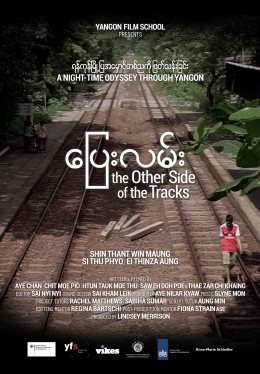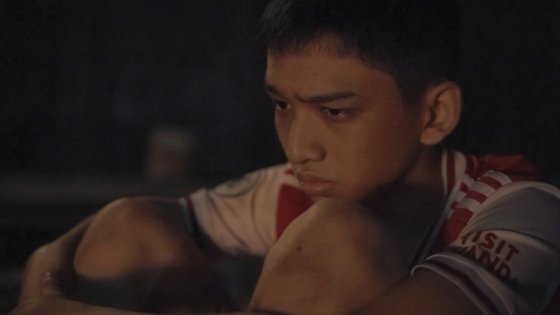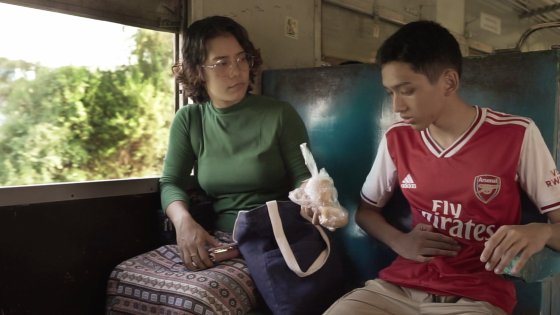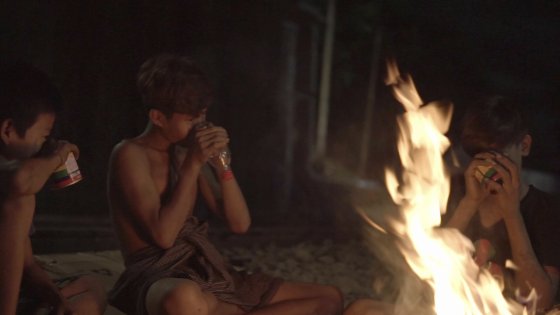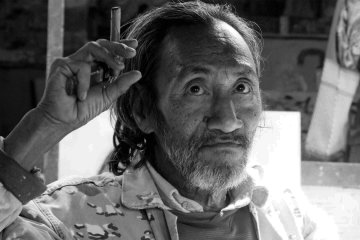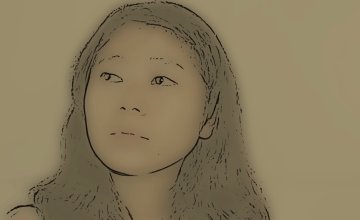Synopsis
Schoolboy Thura runs away from home and meets three street kids. They play football and suppress hunger pangs by sniffing glue. But the freedom of life on the street has its drawbacks. Will Thura realise there's no place like home?
Filmmaker's Biographies
1 | 5
Aye Chan
Aye Chan (13.05.1995 - 18.05.2021) was from Bilin in Myanmar’s Mon State and studied geology at Mawlamyine University. Her work as an online editor at G9 Production and as a freelance photographer made her want to tell stories about the lives of real people in Myanmar through documentary. She enrolled at YFS in 2018 and was cinematographer on fellow student Chit Moe Pio’s intimate and moving portrait of his family in rural Kayah State, Going Home. She was a member of a crew of YFS-trained ‘participatory video’ facilitators who helped a community in eastern Shan State to make two films about local issues, and was also in the five-person creative team behind the short ‘true fictions’ film The Other Side of the Tracks. She travelled to Kayah State again to film her own first documentary as a director – The Father I Knew – for which she received the top Goethe-Institut Myanmar documentary award in 2019.
Aye Chan's life was tragically cut short by her accidental death at Inle Lake on 18.05.2021. Following her death, the International Convention of Asia Scholars (ICAS) in Kyoto dedicated their 2021 edition to Aye Chan and held a special screening of her film. Writing in 2019, Aye Chan said: ‘My impulse as a documentary filmmaker in The Father I Knew is to show the situation for families that have been torn apart by civil war. I want to question this situation and to ask whether there is any chance that things will change for the better in our country in the face of escalating violence and widespread tensions across the land.‘
Chit Moe Pio
Director Chit Moe Pio (born in 1992) is from Kayah, Myanmar’s smallest state. After studies in social science, he attended courses in leadership, peace and conflict resolution before joining a Peace and Development Initiative in Rakhine State where he first came into contact with media as a tool for social development. Since enrolling at Yangon Film School in 2018, he has attended a number of courses including the School’s ‘True Fictions’ programme during which he co-wrote and co-filmed the short fiction film The Other Side of the Tracks. For his first documentary, Going Home, he returned to his native village in Kayah State where his hill-farming family pursue a way of life unchanged for centuries. Filmed in just two days in a remote part of Kayah, Mountain Camp is his second documentary.
Htun Tauk Moe Thu
Htun Tauk Moe Thu is from Myeik in Myanmar's southernmost Tanintharyi region. A graduate of the National University of Arts and Culture's cinema studies course, his desire to learn more about documentary led him to enrol at YFS in 2018. He has since developed a keen filmmaking eye as cinematographer on documentaries by fellow students such as Nang Mhwe Ngin Seng’s Husband & Wife and Seint Yamone Htoo’s Kachin Reporter as well as storytelling skills as the editor on Nang Mhwe Ngin Seng's Not Like My Father. Besides co-creating the papier mâché docu-animation Our Town about a mixed-faith community in the delta region, he has also collaborated on the short documentary-inspired drama, The Other Side of the Tracks. He is currently working on his first documentary as a director in his own right.
Saw Eh Doh Poe
Saw Eh Doh Poe is Karen and grew up in Yangon. Born in 1991 into a Christian pastor’s family, he attended a BARS liberal arts course at the Myanmar Insitute of Theology and then studied IT before turning his attentions to anime and graphic design. In 2014, in between stints as a graphic artist and fixer/producer at Eleven Media and BBC Media Action respectively, he enrolled at Yangon Film School where he attended the School’s flagship documentary course among others. He found his true calling in the School’s first docuanimation class in 2017 from which a trio of short films entitled End Violence Against Women! emerged. These films scored almost 1m views on social media and were also broadcast on national television and radio. His animation skills continued to grow in subsequent courses in 2018 during which he was a key creative on the award-winning sand animation Limbo (Grand Prix at WHO’s Health for All film festival in 2020), and the papier-mâché stop-motion film Our Town. He also worked on a series of animations on land rights and acceptance of difference produced by the School’s production arm Yangon Film Services.
Thae Zar Chi Khaing
Thae Zar Chi Khaing (born in 1991) comes from Sittwe in Myanmar’s Rakhine State. After graduating with a degree in geology, she began working as a video journalist. She attended Yangon Film School from 2016 to 2018 during which time she worked on a large number of projects as either cinematographer and/or editor (e.g. Eim Chan Thar’s Tofu Nights, Shin Thandar’s Worlds Apart and Cherry Thein’s Mother’s Burden. Having attended a YFS course in ‘participatory video’, Thae Zar Chi Khaing joined a YFS Travelling Cinema crew to Inle Lake in 2017 to help a local community create two short films about environmental pollution. She was also co-animator on one of the trio of films in the series End Violence Against Women! produced during the School’s first animation course in 2017. The films reached an audience of almost 1m on social media and on national television. Seeds of Sadness, which she shot, directed and edited in her second year at YFS, was joint-winner of the 2017 Goethe Institut Ruby Documentary Award.
